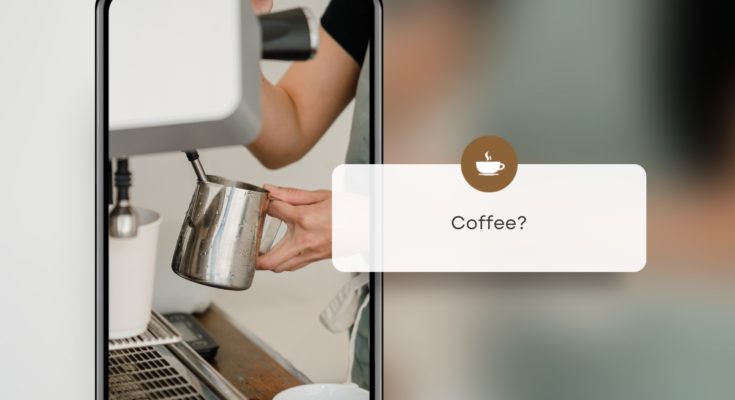What if you could drop a truth bomb on Facebook and disappear like a digital ghost?
That’s the fantasy. A message that’s real, raw, and completely untraceable. No backlash, no awkward follow-ups, no aunties asking “beta, is everything okay?”
But here’s the catch: Facebook was never designed for true anonymity. And posting without getting flagged is trickier than it looks.
Still, Gen Z is finding ways. Quiet loopholes. Smart workarounds. And some unexpected tools outside of Facebook altogether.
Let’s unpack how it actually works and what doesn’t.
Why Do People Want to Post Anonymously on Facebook?
Anonymity isn’t about hiding. It’s about saying what you can’t say with your name attached.
Think about it.
- You want to confess a crush in a college Facebook group.
- You need to call out toxic behavior in a flatmate thread.
- You’re airing frustration about politics, parents, or professors but you don’t want it tied to your profile.
In a world obsessed with “personal branding,” anonymity feels like rebellion. Or relief.
It lets the message matter more than the messenger.
Can You Actually Post Anonymously on Facebook?
Short answer: Not directly.
Facebook doesn’t offer a native “anonymous post” option unless you’re in a group that’s specifically turned that feature on.
But here’s where things get interesting.
There are three main ways people are posting anonymously or semi-anonymously on Facebook:
1. Use Facebook Group’s Anonymous Post Feature
What It Is
Some Facebook groups allow anonymous posting via a built-in setting.
When you turn it on, your identity is hidden from other members. Only the admins (and Facebook itself) can see who posted it.
How to Use It
- Join a group that enables anonymous posts. (Many confession groups, meme pages, and college circles do.)
- Look for the “Post anonymously” toggle when posting.
- Write your post and hit publish.
Pros
- Looks native and seamless
- No need to switch apps
- Can spark real engagement without revealing your name
Cons
- Not available in every group
- Admins still see your identity
- Facebook still has full data on you
2. Create a Second (Low-Key) Account – But Be Careful
This is the go-to method for many digital natives.
A secondary “ghost account” with a fake name lets you post freely, comment on sensitive threads, or even run pages anonymously.
But it’s also a minefield.
Facebook Cracks Down on Fake Profiles
- Matching IPs can get both accounts flagged
- Suspicious activity (mass joining of groups, posting links) = instant shadowban
- Using the same device or phone number connects the dots
If You Still Want to Try It…
- Use a separate browser or device
- Don’t link it to your primary email or phone
- Keep activity human not spammy
Even then, this isn’t foolproof. Meta’s AI is trained to sniff out fake behavior fast.
So if you’re looking for true anonymity, this route is risky.
3. Post Anonymously Outside Facebook, Then Share It
This is the method most Gen Z users don’t talk about publicly but use all the time.
You write a message somewhere else on an anonymous platform like SecretNote.me then share that link in a Facebook group, post, or story.
The message lives elsewhere. But it feels native.
Why It Works
- You never tie the post to your Facebook account
- You can delete the message at any time
- You control how long it lasts or who sees it
Think of it like this: Facebook is the bulletin board. The real message lives off-platform.
How to Avoid Getting Flagged or Reported
Anonymity is one thing. But staying under Facebook’s radar is another game entirely.
Here’s what triggers flags:
Suspicious Language
Words that sound like hate speech, threats, or spam even when you don’t mean it that way get caught by Facebook’s AI filters.
Avoid shouting, slurs, or aggressive tone.
External Links That Look Spammy
If you share a link, make sure it’s not triggering Facebook’s spam filters.
Pro tip: tools like SecretNote.me are lightweight, clean, and don’t scream “clickbait,” so they’re safer.
Repetition or Mass Sharing
Posting the same message across 10 groups? That’s a red flag.
Commenting with the same link over and over? Same problem.
Instead: post once, organically. Let it spread if it hits.
What Gen Z Is Doing Differently in 2025
They’re not trying to outsmart Facebook. They’re bypassing it.
There’s a quiet shift happening. More and more users are treating Facebook like a distribution channel not the main platform.
The real content lives off-platform.
- Confessions are posted on anonymous tools
- Rants are screenshotted from private apps
- Links are shared like secrets not status updates
It’s not about shouting to everyone. It’s about whispering to the right ones.
Bonus: What Happens When You Do Get Flagged
If your post gets reported or flagged, here’s what usually happens:
- Soft warning: You’re told the post was removed
- Strike added: Your account gets a temporary limit
- Reach drop: Future posts get buried in the feed
- Repeat offenses = account lock
In short: anonymity won’t save you if your content breaks the rules.
That’s why more users are choosing tools built for safe anonymous expression.
Why Tools Like SecretNote.me Are Taking Off
Here’s what platforms like SecretNote.me offer that Facebook can’t:
- Truly anonymous messaging – no login, no identity trail
- Auto-deletion options – messages vanish after being read
- End-to-end encryption – even the platform can’t read your content
You get to say what you mean without worrying about getting flagged, stalked, or screenshot by someone you barely know.
It’s like having a digital post-it note that vanishes the moment it’s seen.
And for a generation raised on overexposure, that privacy hits differently.
Final Thought: Anonymity Isn’t the Goal – Freedom Is
Posting anonymously on Facebook isn’t just a hack. It’s a response to how public everything’s become.
When every thought is archived, judged, and mined for engagement… silence starts to feel safer.
But what if you could speak without fear without followers, filters, or feedback loops?
That’s what Gen Z is chasing.
Not just invisibility.
Agency.
Want to test it for yourself?Drop a message on SecretNote.me. No name. No account. No footprint. Just one note, one truth, one chance to be real.



